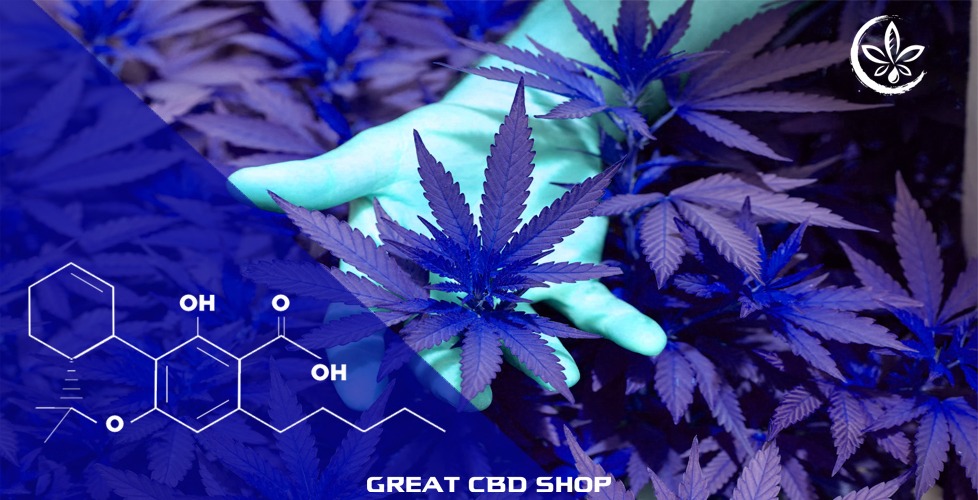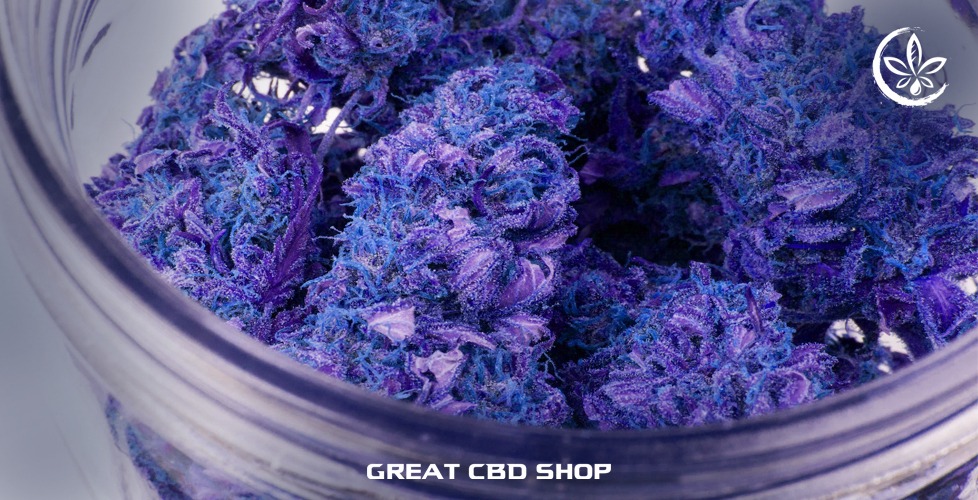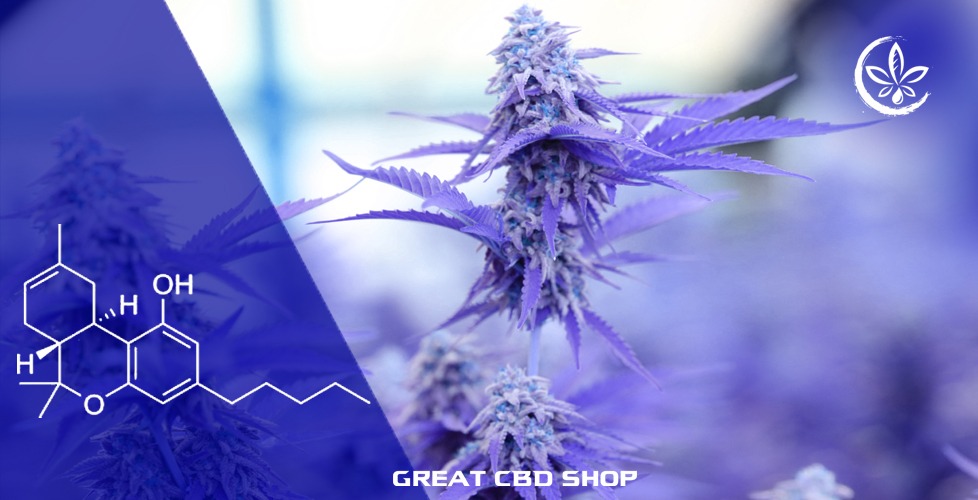THCA vs Delta 8 THC: A Comprehensive Guide to Their Effects and Uses

The world of cannabis is as intriguing as it is complex. While many are familiar with THC and CBD, the cannabinoids that often headline news stories, lesser-known compounds like THCA and Delta 8 THC are coming into their own.
Each of these compounds has unique properties, uses, and effects that deserve a more in-depth look.
What is THCA?

Tetrahydrocannabinolic Acid, or THCA, is a cannabinoid present in raw and live cannabis plants. Unlike THC, which is what THCA turns into when exposed to heat, THCA is non-psychoactive. It won’t produce the “high” commonly associated with cannabis.
Effects of THCA

Non-Psychoactive
First and foremost, it’s crucial to understand that THCA will not produce psychoactive effects. In other words, it won’t get you high. This feature makes it more appealing to those looking for the benefits of cannabinoids without the psychoactive side effects.
Anti-Inflammatory
THCA is showing promise in the realm of anti-inflammatory benefits. Studies suggest that it can help regulate the immune system and suppress inflammation, although further research is needed to establish its effectiveness fully.
Neuroprotective Properties
Initial research also suggests that THCA could act as a neuroprotective agent. This means it might protect against diseases like Parkinson’s and Alzheimer’s, although, again, more research is needed to substantiate these claims.
Uses of THCA
Raw Juicing
One of the most common ways to consume THCA is through raw cannabis juicing. This method allows you to take in THCA without converting it into THC, thereby avoiding any psychoactive effects.
Supplements
THCA is available in capsule form, often marketed as a dietary supplement. These supplements can provide a concentrated dose of THCA without the need to consume cannabis in its raw form.
Ongoing Research
There is ongoing medical research focusing on the therapeutic potentials of THCA, particularly in the areas of inflammation and neurodegenerative diseases.
Side Effect of THCA
THCA is generally considered non-intoxicating, and its side effects, if any, are less pronounced compared to THC. However, some people may still experience mild side effects when consuming high doses of THCA-rich products. Here are possible side effects associated with THCA:
Gastrointestinal Discomfort
In some cases, consuming large amounts of THCA-rich products, particularly raw cannabis, may lead to gastrointestinal discomfort, including nausea and stomach cramps.
Dry Mouth
Like many cannabinoids, THCA can cause dry mouth, often referred to as “cottonmouth.” This occurs because cannabinoids can inhibit saliva production.
Low Blood Pressure
THCA has been shown to have vasodilatory properties, which means it can widen blood vessels and potentially lower blood pressure. This effect is generally mild, but it could lead to lightheadedness or dizziness in some individuals, especially if they have low blood pressure to begin with.
Potential Allergic Reactions
While rare, some individuals may be sensitive or allergic to certain components of cannabis, including THCA. This could lead to allergic reactions such as skin rashes or respiratory symptoms.
Interactions with Medications
THCA could potentially interact with certain medications, particularly those that are metabolized by the same enzymes in the liver. This interaction could alter the way the medications are metabolized and affect their effectiveness.
Limited Research
It’s important to note that there is limited research specifically focused on the side effects of THCA, as it is typically consumed in its acidic, non-psychoactive form. Most of the research on cannabis side effects pertains to THC, the psychoactive form of the cannabinoid.
If you’re considering using THCA-rich products, it’s advisable to start with low doses and monitor your body’s response. As with any cannabis product, individual reactions can vary, so it’s essential to use caution, especially if you are new to cannabis or have underlying medical conditions.
If you have specific health concerns or are taking medications, consult with a healthcare professional before using THCA-rich products.
What is Delta 8 THC?

Delta 8 THC is another cannabinoid, but unlike THCA, it is psychoactive. It’s chemically similar to Delta 9 THC—the THC most people are familiar with—but with some noteworthy differences.
Effects of Delta 8 THC

Positive Effects of Delta 8 THC
Psychoactive, but Milder
Delta 8 THC is less potent than its close relative, Delta 9 THC. This means that while it can still get you high, the high is often described as clearer and less intense.
Mild Euphoria
Many users report feeling a sense of upliftment and mild euphoria when consuming Delta 8 THC. This makes it suitable for those who find Delta 9 THC to be too intense.
Calming Effects
Delta 8 THC tends to produce a milder, more focused, and calm experience compared to Delta 9 THC. This is particularly beneficial for individuals who are looking for relaxation without overwhelming effects.
Side Effects of Delta 8 THC
Delta-8 THC (Delta-8 Tetrahydrocannabinol) is a cannabinoid that is less potent than its more well-known counterpart, Delta-9 THC.
While Delta-8 THC is generally considered to have milder side effects compared to Delta-9 THC, it can still produce some side effects, especially at higher doses. Here are some possible side effects of Delta-8 THC:
Dry Mouth
Like many cannabinoids, Delta-8 THC can cause dry mouth, often referred to as “cottonmouth.” This occurs because cannabinoids can reduce saliva production.
Red Eyes
Delta-8 THC may lead to bloodshot or red eyes, similar to the effects of Delta-9 THC. This is due to the dilation of blood vessels in the eyes.
Increased Heart Rate
Some individuals may experience an increase in heart rate or palpitations after consuming Delta-8 THC. This effect can be more pronounced in people with pre-existing heart conditions.
Dizziness or Lightheadedness
Delta-8 THC can cause dizziness or lightheadedness, especially at higher doses or for individuals with low tolerance.
Anxiety or Paranoia
In some cases, Delta-8 THC may lead to anxiety or paranoia, particularly in individuals who are prone to these conditions. Lower doses or different strains may help mitigate this effect.
Impaired Coordination and Concentration
Similar to Delta-9 THC, Delta-8 THC can impair coordination and concentration, making activities that require focus, such as driving, potentially dangerous.
Changes in Mood
Delta-8 THC may affect mood, leading to euphoria or changes in emotional states. Some users may experience a sense of relaxation and well-being, while others may feel anxious or irritable.
Appetite Stimulation
Like Delta-9 THC, Delta-8 THC can stimulate appetite, leading to increased food consumption, commonly known as “the munchies.”
Memory and Cognitive Effects
Delta-8 THC may affect short-term memory and cognitive function while under its influence.
Hallucinations (Rare)
In rare cases and at very high doses, Delta-8 THC might induce hallucinations or altered perceptions.
It’s essential to start with a low dose when using Delta-8 THC and gradually increase it to find the right balance that suits your needs while minimizing potential side effects.
If you have any concerns or underlying medical conditions, consult with a healthcare professional before using Delta-8 THC products.
Uses of Delta 8 THC
Recreational Use
Delta 8 THC is gaining popularity for recreational use, thanks to its milder effects compared to Delta 9 THC.
Anti-Nausea
Preliminary research suggests that Delta 8 THC may have anti-nausea properties, making it potentially useful for individuals undergoing treatments like chemotherapy.
Appetite Stimulant
Another purported benefit of Delta 8 THC is its ability to stimulate appetite, which could be beneficial for those suffering from conditions that cause appetite loss.
THCA vs Delta 8: Key Differences
Psychoactivity
The most fundamental difference is that THCA is non-psychoactive, while Delta 8 THC is psychoactive.
Legality
THCA is generally considered legal when derived from hemp. However, the legality of Delta 8 THC varies from state to state and is subject to ongoing legal debates.
Conversion and Occurrence
THCA is converted into THC when heated, whereas Delta 8 THC can be both naturally occurring or derived synthetically from Delta 9 THC.
Combining THCA and Delta 8
Using THCA and Delta 8 THC together could yield synergetic effects, amplifying the benefits of each.
Balanced High
The non-psychoactive THCA could balance out the psychoactive effects of Delta 8 THC, creating a milder, more nuanced high.
Enhanced Anti-Inflammatory and Calming Effects
The anti-inflammatory properties of THCA could be enhanced when taken with Delta 8 THC, offering broader potential applications for conditions like arthritis or chronic pain.
Medical Applications
The combination could pave the way for a new range of medical applications, targeting both physical and psychological symptoms.
THCA+Delta 8 products available in the market
The distinct and targeted effects of Delta 8 and THCA infused products are attracting more and more users to include these products in their wellness routines.
Manufacturers recognize the growing interest in alternative cannabinoids and are responding by offering these products in the market.
By catering to a diverse range of preferences and wellness goals, manufacturers aim to provide consumers with options that align with their specific needs, enhancing the overall accessibility and versatility of cannabinoid-infused products.
Below are listed a few products that offer the combined wellness effects of THCA and Delta 8.
Urb Saucy Diamonds D8 + THCA + THCH Disposable 3g

Urb Saucy Diamonds D8 + THCA + THCH Disposable 3g is a premium offering from the Lifted Made team, bringing back the often-overlooked THCA into the spotlight, and in style.
This 3g disposable packs a potent blend of Delta 8 THC, THCA, THCH, and resin terpenes, all sourced from some of the most robust concentrates available.
Coined as ‘Saucy Diamonds,’ the distillate within the device showcases pure THCA diamonds floating in a sumptuous live resin terpene sauce. In line with Lifted Made’s commitment to quality, the hardware is top-notch.
With button activation, pre-heat functionality, and variable voltage, users get full control over their vaping experience. Hard hits or flavor-packed puffs? Large clouds or small? You decide.
Urb has also enhanced the ceramic coil for better flavor and smoother hits and tweaked the oil intake hole size for improved airflow and reduced clog risk. All this premium experience is priced at just $29.99.
Final Thought
Both THCA and Delta 8 THC have unique roles to play in the evolving landscape of cannabinoids. Understanding their distinct effects and uses can enable consumers to make more informed decisions. As research continues to unfold, we may uncover even more synergies and benefits that these fascinating compounds can offer.

